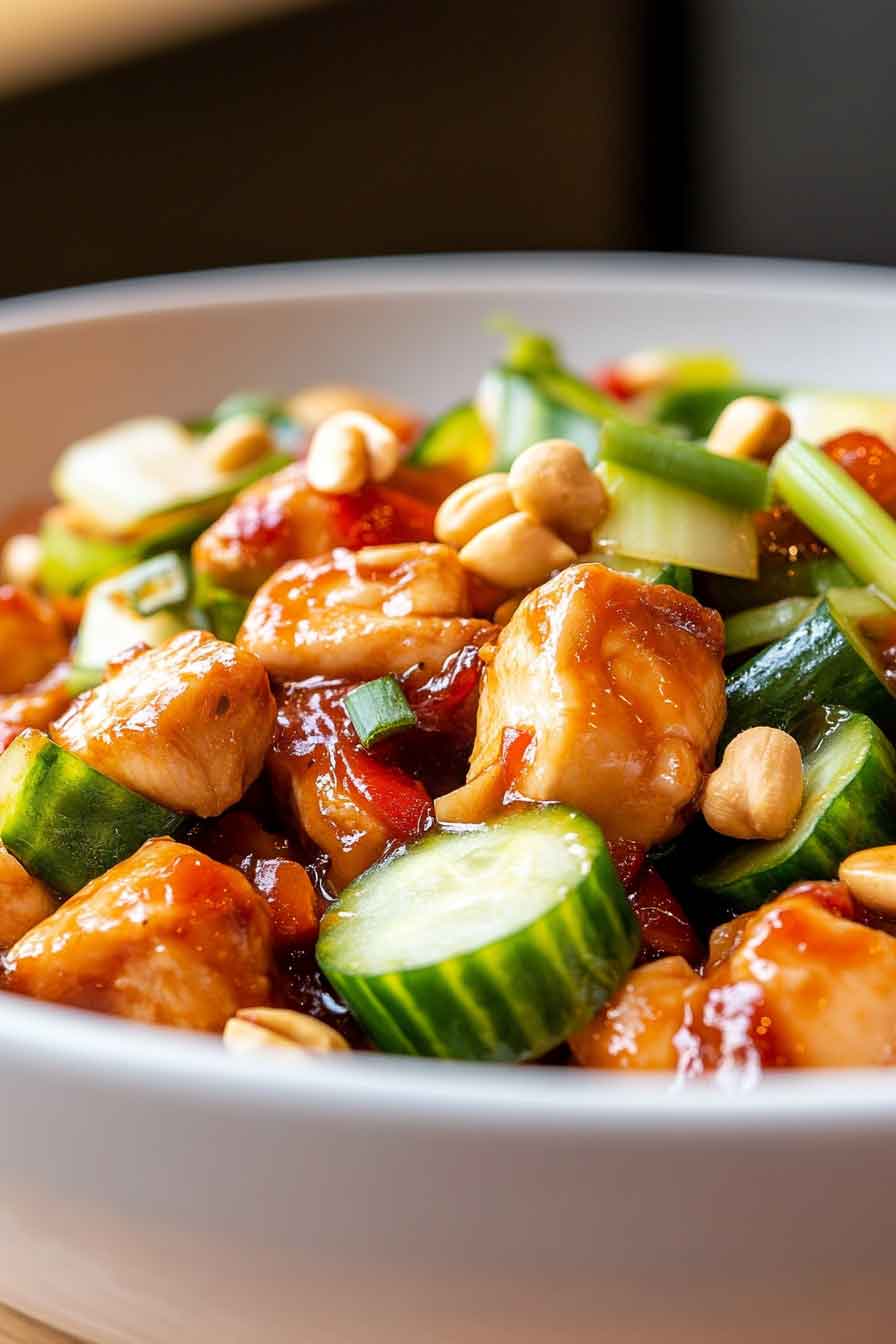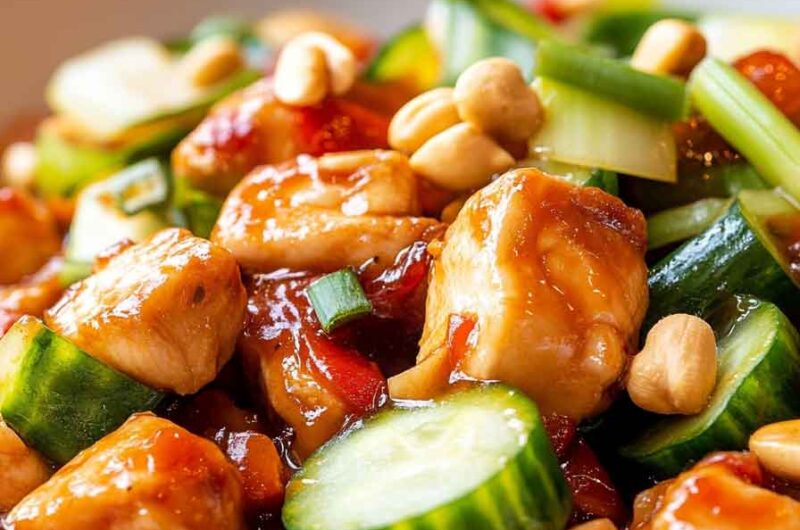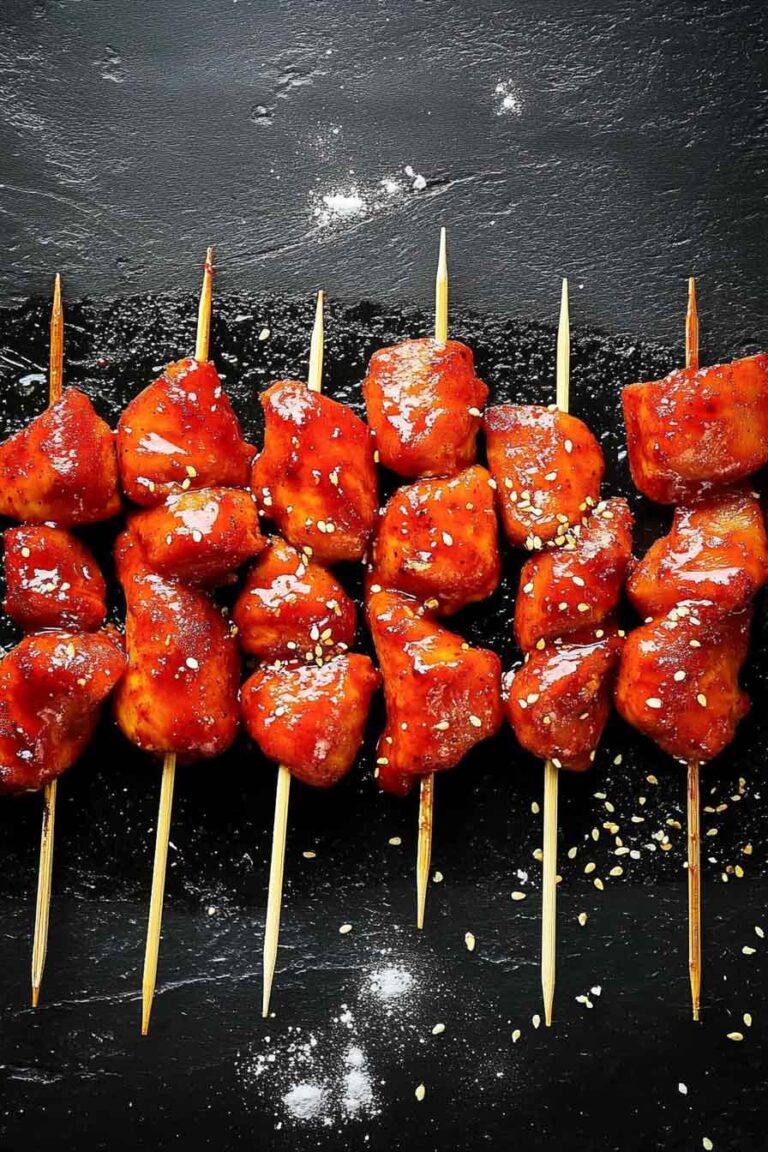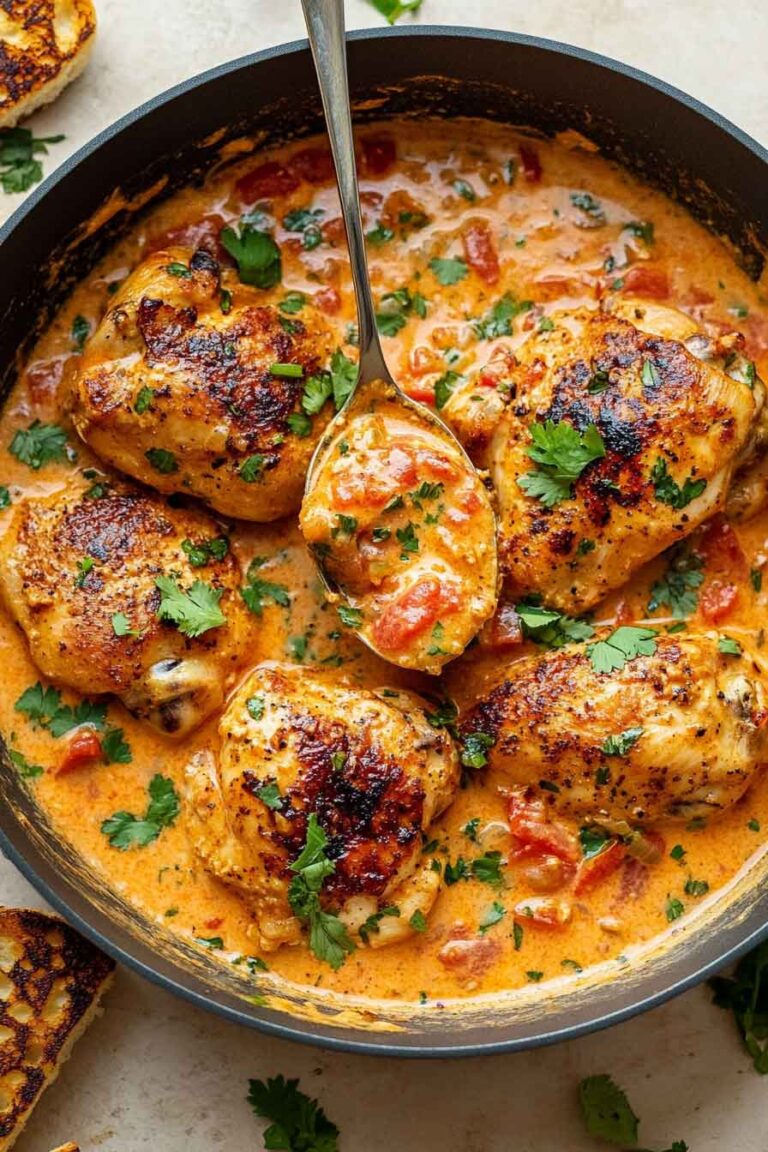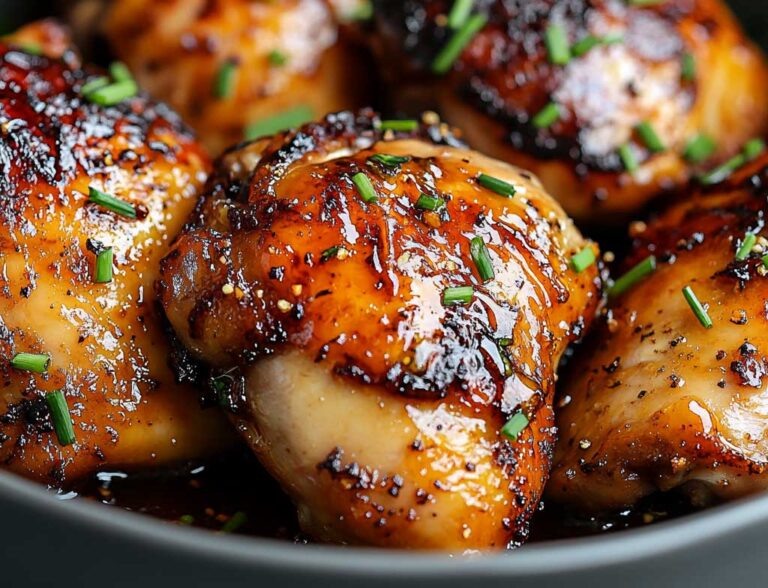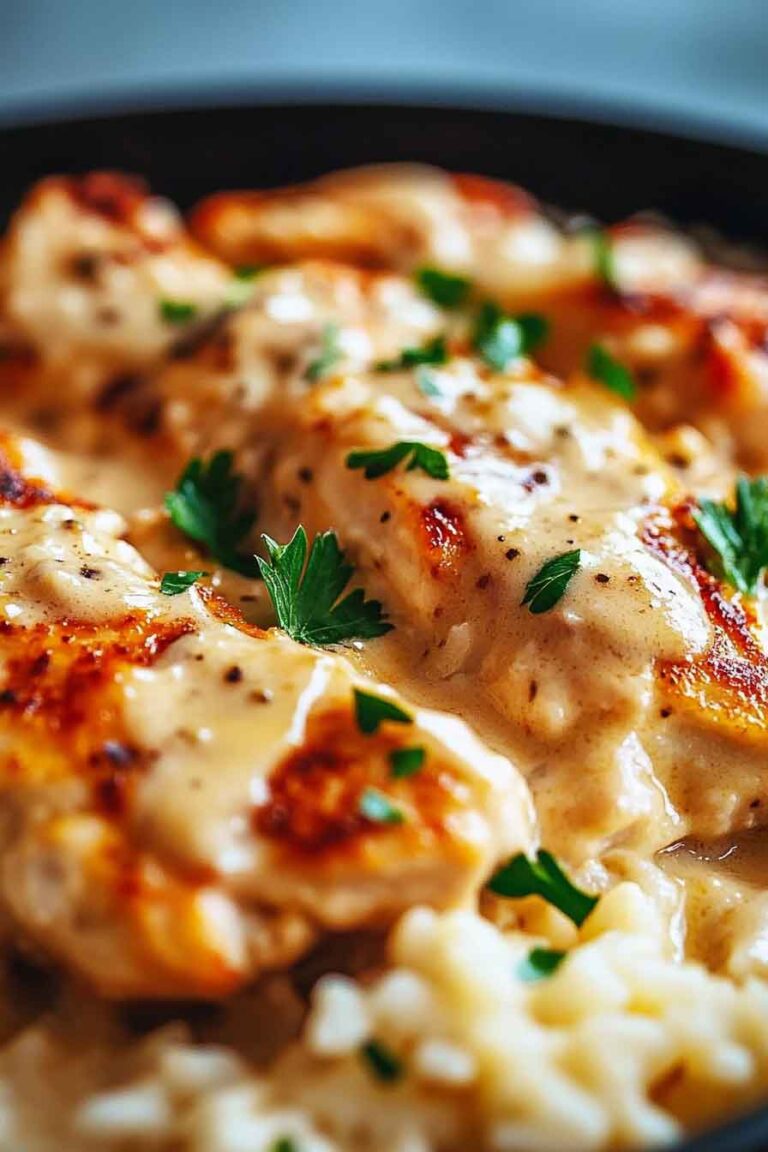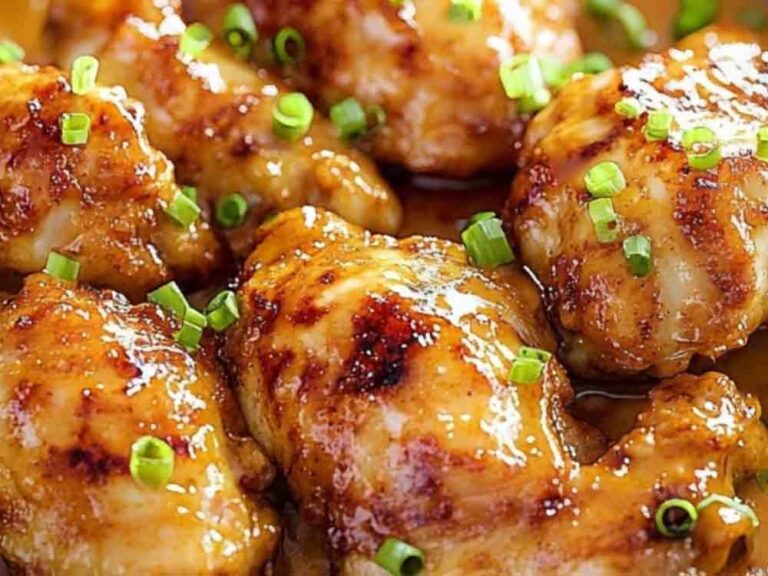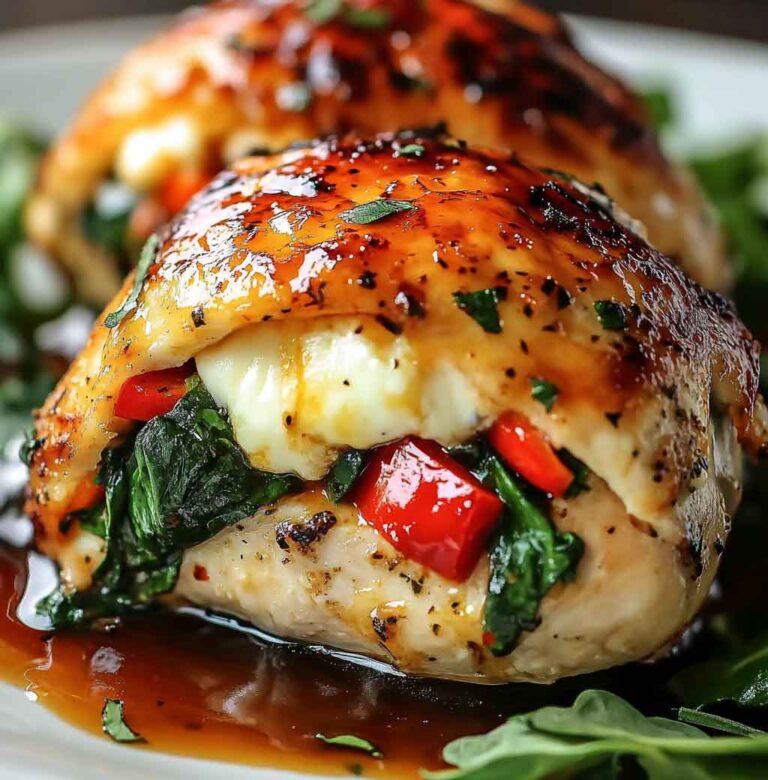Sichuan-Style Kung Pao Chicken (Kong Bao Ji Ding) Recipe
Wanna know what makes my kitchen smell like heaven? It’s this spicy, sweet, and nutty Kung Pao Chicken. Every time I make it, the whole house comes running.
This isn’t your basic stir-fry. It’s bold, zesty, and has that perfect tingle from Sichuan peppercorns. Oh, and those crunchy peanuts? So good.
I learned this the fun way—with a few splatters and way too many chili peppers. But now? I’ve got it just right, and it tastes better than takeout. Trust me, you’ll want this on repeat.
Ready to cook like a Sichuan pro (well, almost)? Let me show you how I do it step-by-step. You’ll totally rock it.
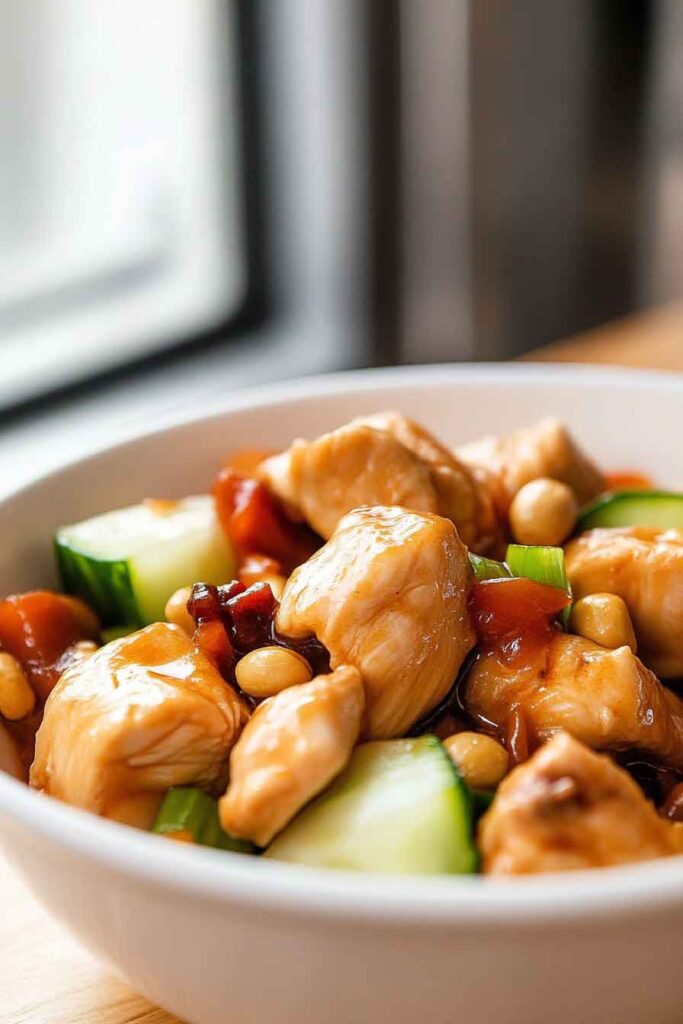
Why You’ll Love This Recipe
- Real Sichuan Flavor: A balance of spicy, savory, and slightly sweet, with that iconic numbing tingle from Sichuan peppercorns.
- Quick and Easy: Prep and cooking together take under an hour.
- Better Than Takeout: Made with fresh ingredients, no additives, and fully customizable to your spice level.
- Pan or Wok Friendly: No special equipment required, though a wok is ideal.
- Perfect for Meal Prep: Keeps well and reheats beautifully.
What You Need to Know Before You Start
Prep Time & Cook Time:
Prep Time: 20 minutes
Cook Time: 20 minutes
Total Time: About 40 minutes
Servings:
This recipe makes 4 servings when served with rice or noodles. Scale up easily by doubling the chicken and sauce ingredients.
Difficulty:
Intermediate. The techniques are simple, but cooking fast in high heat takes focus and timing.
Required Kitchen Tools
- Wok or large nonstick skillet
- Mixing bowls (for marinating and sauces)
- Cutting board and sharp knife
- Small whisk or spoon for mixing sauces
- Slotted spoon or spatula
- Rice cooker or pot (for serving, optional)
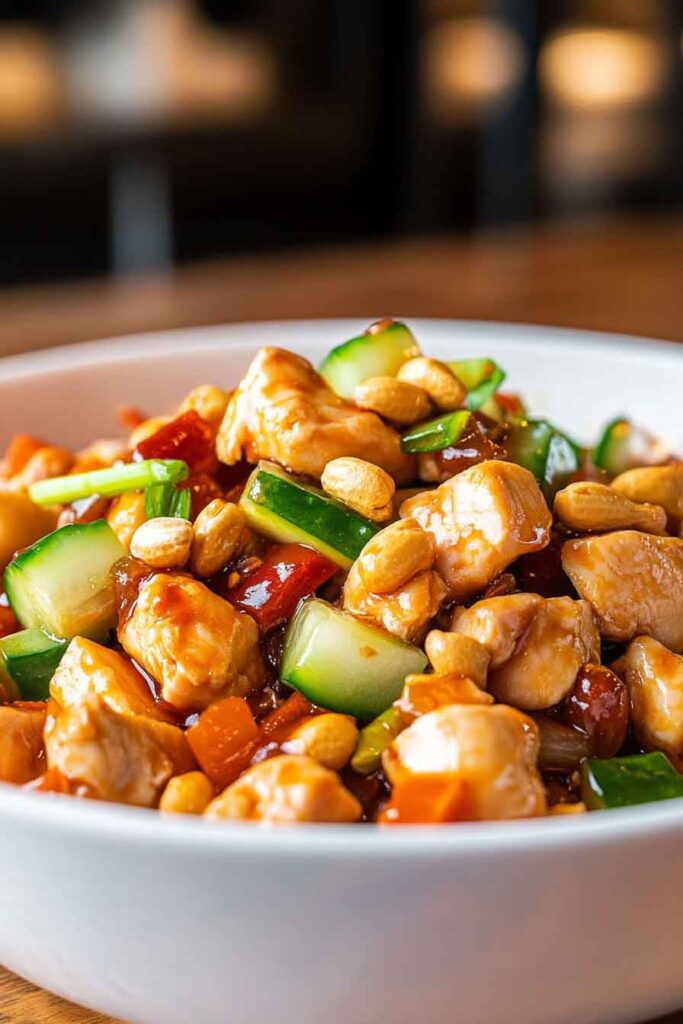
Ingredients for the Marinade
Here’s what you’ll need to marinate the chicken (exact amounts are in the recipe card at the end):
- Boneless, skinless chicken breast or thighs – Cut into 1-inch cubes
- Light soy sauce – For seasoning
- Shaoxing wine (or dry sherry) – Adds aroma and helps tenderize
- Cornstarch – Helps seal in moisture and adds a light coating
Ingredients for the Kung Pao Sauce
This bold and balanced sauce brings the dish together:
- Balsamic vinegar (or Chinese black vinegar) – Deep tangy flavor
- Light soy sauce – Salty and savory
- Hoisin sauce – Adds sweet complexity
- Sesame oil – Just a touch for nutty aroma
- Sugar – Balances the spice and acidity
- Cornstarch – Helps thicken the sauce
- Water – Adjusts consistency
Ingredients for the Stir-Fry
These ingredients build the classic texture and aroma:
Roasted, unsalted peanuts – Essential for crunch and contrast
Vegetable oil – Neutral, high-heat cooking oil
Dried red chilies – Adds heat (adjust to taste)
Sichuan peppercorns – Signature numbing sensation
Red bell pepper – Brightness and crunch
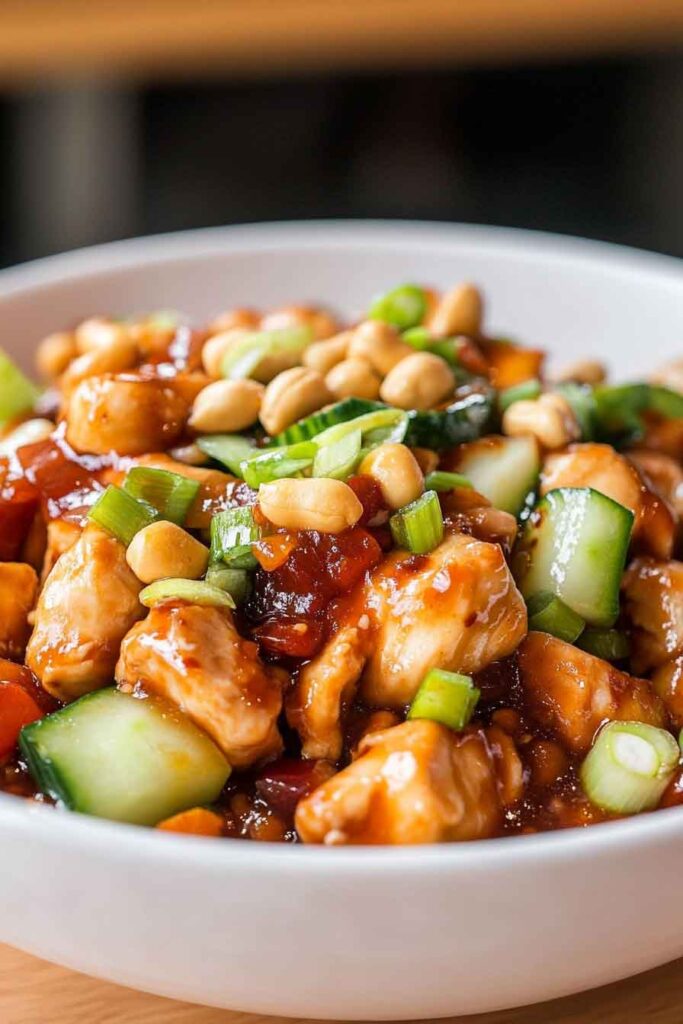
Celery – Adds freshness and crisp texture
Scallions – Sliced for flavor and garnish
Garlic – Thinly sliced or minced
How to Make Kung Pao Chicken – Step-by-Step Instructions
1. Marinate the Chicken
In a bowl, combine diced chicken with soy sauce, Shaoxing wine, and cornstarch. Toss well to coat. Let it rest for 15–20 minutes while you prep the other ingredients. This step helps tenderize the meat and gives it a silky texture when cooked.
2. Prepare the Sauce
In a small bowl, whisk together balsamic vinegar, soy sauce, hoisin sauce, sesame oil, sugar, cornstarch, and water. Set aside. This sauce will go in at the end, thickening quickly and coating everything in flavor.
3. Stir-Fry the Aromatics
Heat a wok or large skillet over medium-high heat. Add the vegetable oil. Once hot, toss in the dried red chilies and Sichuan peppercorns. Stir-fry for about 30 seconds, just until fragrant—don’t let them burn.
Add garlic and stir quickly for 10–15 seconds until just golden.
4. Cook the Chicken
Turn up the heat to high. Add the marinated chicken in a single layer. Let it sit undisturbed for 1–2 minutes to sear, then stir-fry until the pieces are browned and cooked through, about 4–5 minutes. Remove the chicken from the pan and set aside.
5. Add the Veggies
In the same pan, add the red bell pepper and celery. Stir-fry for 2–3 minutes until just tender but still crisp. Return the chicken to the pan.
6. Pour in the Sauce
Give the sauce a quick stir (the cornstarch settles). Pour it over the chicken and veggies. Stir continuously for 1–2 minutes until the sauce thickens and everything is well-coated.
7. Add Peanuts and Scallions
Toss in the roasted peanuts and most of the scallions (save a few for garnish). Stir everything for another 30 seconds, just to warm the peanuts without making them soggy.
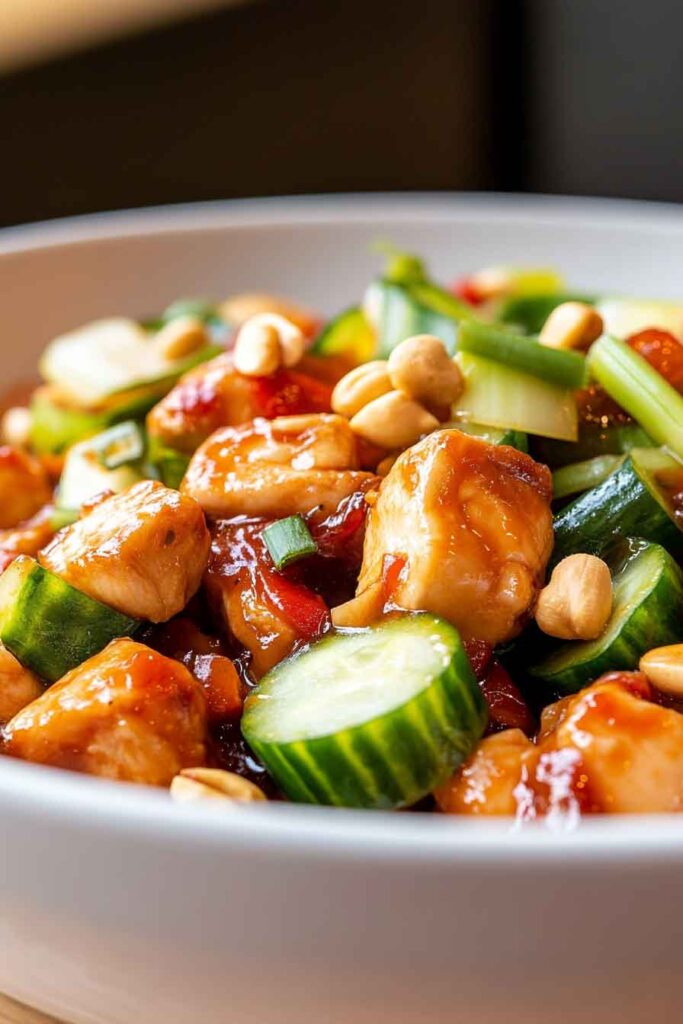
Variations for Kung Pao Chicken
- Use Cashews Instead of Peanuts: If you prefer a different crunch or have peanut allergies, lightly roasted cashews work well.
- Vegetarian Option: Substitute chicken with firm tofu or seitan. Make sure to press tofu dry and fry it until golden before adding sauce.
- Add Zucchini or Carrots: Thinly sliced vegetables add more variety and color to the dish.
- Control the Heat: Adjust the number of dried chilies and Sichuan peppercorns based on your spice tolerance. For a milder dish, reduce both.
- Swap the Vinegar: Chinese black vinegar is traditional, but balsamic vinegar works well if that’s what you have on hand.
How to Serve Kung Pao Chicken
Kung Pao Chicken is bold, so it pairs best with mild, neutral sides that soak up the sauce and balance the spice.
- Steamed White Rice: A classic base that highlights the flavors without overpowering them.
- Fried Rice or Brown Rice: For something more filling, go with your favorite grain variety.
- Noodles: Thin lo mein-style noodles or even rice noodles work beautifully.
- Stir-Fried Greens: Bok choy, Chinese broccoli, or spinach help round out the meal with freshness.
- Cucumber Salad: A chilled cucumber salad with rice vinegar can cool down the heat.
Storing Kung Pao Chicken
Proper storage helps maintain texture and flavor, especially the crunch from the peanuts.
- Refrigerate: Let leftovers cool fully. Store in an airtight container in the fridge for up to 3 days.
- Reheat Gently: Warm in a skillet over low to medium heat until just heated through. Avoid high heat to prevent overcooking the chicken or softening the peanuts too much.
- Freeze: Not ideal for this dish. The sauce can separate, and the peanuts may turn mushy. It’s best enjoyed fresh or within a few days.
Tips and Tricks for Success
- Prep Everything First: Kung Pao Chicken cooks fast. Having all your ingredients chopped and ready is key.
- Control Your Heat: Adjust the number of dried chilies and peppercorns to match your comfort level. Start small—you can always add more.
- Don’t Overcook the Peanuts: Add them at the end to keep their crunch. Overheating makes them soft.
- Marinate for Tenderness: Even 15 minutes in the marinade makes a big difference in texture.
- Wok vs. Skillet: Use a wok for better heat distribution, but a large nonstick or stainless steel pan will also work.
Nutrition
Here’s an approximate breakdown per serving (without rice):
| Nutrient | Amount |
|---|---|
| Calories | 385 kcal |
| Protein | 30 g |
| Carbohydrates | 18 g |
| Sugars | 7 g |
| Fat | 22 g |
| Saturated Fat | 3 g |
| Fiber | 2 g |
| Sodium | 780 mg |
Note: Values may vary depending on the exact ingredients and portions used.
Sichuan-Style Kung Pao Chicken (Kong Bao Ji Ding) Recipe
Course: Chicken4
servings20
minutes20
minutes385
kcal40
minutesIngredients
- For the Chicken Marinade:
1 lb chicken breast or thighs, diced
1 tbsp light soy sauce
1 tbsp Shaoxing wine (or dry sherry)
1 tsp cornstarch
- For the Sauce:
2 tbsp balsamic vinegar (or Chinese black vinegar)
1½ tbsp light soy sauce
1 tbsp hoisin sauce
1 tsp sesame oil
1 tbsp sugar
1 tsp cornstarch
3 tbsp water
- For the Stir-Fry:
2 tbsp vegetable oil
8–10 dried red chilies
1 tsp Sichuan peppercorns
1 red bell pepper, diced
1 stalk celery, thinly sliced
2–3 scallions, chopped
2 cloves garlic, sliced
⅓ cup roasted, unsalted peanuts
Directions
- Marinate Chicken: Mix chicken with soy sauce, Shaoxing wine, and cornstarch. Let sit for 15–20 minutes.
- Make Sauce: In a bowl, whisk together vinegar, soy sauce, hoisin, sesame oil, sugar, cornstarch, and water. Set aside.
- Stir-Fry Aromatics: Heat oil in a wok. Add dried chilies and Sichuan peppercorns, stir-fry for 30 seconds. Add garlic.
- Cook Chicken: Add chicken, stir-fry until browned and cooked through. Remove and set aside.
- Veggies: Stir-fry bell pepper and celery for 2–3 minutes. Return chicken to pan.
- Add Sauce: Pour sauce over everything, stir until thickened.
- Final Touch: Add peanuts and most of the scallions. Stir briefly. Serve warm with rice or noodles.
Kung Pao Chicken FAQs
Q: Can I make this less spicy?
Yes. Use fewer dried chilies and Sichuan peppercorns. You can even skip the peppercorns entirely if preferred.
Q: Is there a substitute for Shaoxing wine?
Dry sherry or even a small splash of apple cider vinegar can work in a pinch.
Q: Can I use chicken thighs instead of breast?
Absolutely. Thighs are more forgiving and stay juicier, especially with high-heat stir-frying.
Q: What kind of peanuts should I use?
Roasted and unsalted peanuts are best. If using salted peanuts, reduce added salt in the dish.
Conclusion
Kung Pao Chicken is more than a takeout favorite — it’s a bold, balanced, and satisfying dish that’s surprisingly simple to recreate at home. The mix of heat, crunch, and deep savory sauce makes each bite memorable.
Take your time with the prep, enjoy the aromas as it sizzles in your pan, and serve it hot over rice for a comforting meal you’ll want to revisit. Once you make it from scratch, you might just skip the delivery menu next time.
